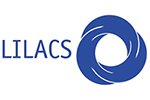ISSN Online: 2177-1235 | ISSN Print: 1983-5175
Showing of 1 until 1 from 1 result(s)
Search for : Fissura palatina Fissura labial Incidência
Prevalence of kinds of cleft lip and palate at a Pediatric Hospital in Northeast of Brazil
ABSTRACT
Objectives: The aim of this study was to assess the prevalence of cleft lip and palate in a Pediatric Center of Northeast of Brazil and to determine which types of these conditions that most affect these children. Methods: From June 2008 to February 2010, 551 children with cleft lip and palate followed by the NAIF (Ceara, Northeast of Brazil) were chosen to participate of the present study. The analyzed variables were sex, type of cleft lip and affected side of the lip. Cleft types were evaluated according to the Spina classification. All information was stored in a database and subjected to descriptive statistical analysis. Results: Fifty-three percent of the assessed population were male. Among all types of cleft lip and palate, the trans-incisive foramen clefts were the most frequent (72.6%). Regarding the affected side, left clefts were most common (61.3%). A higher prevalence of trans-incisive foramen cleft in males and post-incisive foramen cleft in girls was observed.
Keywords: Cleft Palate. Cleft lip. Incidence.
RESUMO
Objetivos: O objetivo deste estudo foi avaliar a prevalência das fissuras labiais e palatais e verificar quais os tipos dessas fissuras que mais acometem as crianças no nosso meio. Método: A amostra é constituída de 551 crianças portadoras de fissura labiopalatinas que procuraram o Núcleo de Atendimento Integrado ao Fissurado do Hospital Infantil Albert Sabin, na cidade de Fortaleza, Ceará, no período de junho de 2008 a fevereiro de 2010. As variáveis estudadas foram sexo, tipo de fissura e lado afetado. Os tipos de fissura foram avaliados segundo a classificação de Spina. As informações foram armazenadas em um banco de dados e submetidas à análise estatística descritiva. Resultados: Cinquenta e três por cento da população amostral era do sexo masculino. Dentre todos os tipos de fissuras labiopalatinas, as fissuras transforame foram as mais frequentes (72,6%). Com relação ao lado acometido, as fissuras unilaterais esquerdas foram as mais frequentes (61,3%). Observou-se maior prevalência de fissura pós-forame no sexo feminino e de fissura transforame no sexo masculino.
Palavras-chave: Fissura palatina. Fissura labial. Incidência.
 All scientific articles published at www.rbcp.org.br are licensed under a Creative Commons license
All scientific articles published at www.rbcp.org.br are licensed under a Creative Commons license






